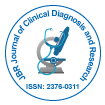Mini Review
Cardioprotective Effects of Intermittent Fasting
Hongxin Zhu* and Lin HeBio-X Institutes, Key Laboratory for the Genetics of Developmental and Neuropsychiatric Disorders, Ministry of Education, Shanghai Jiao Tong University, Shanghai, China
- *Corresponding Author:
- Hongxin Zhu
Bio-X Institutes, Key Laboratory for the Genetics of Developmental and Neuropsychiatric Disorders
Ministry of Education, Shanghai Jiao Tong University, Shanghai, PR China
Tel: 862134207232
E-mail: hxzhu@sjtu.edu.cn
Received date: February 20, 2017; Accepted date: March 04, 2017; Published date: March 08, 2017
Citation: Zhu H, He L (2017) Cardioprotective Effects of Intermittent Fasting. J Clin Diagn Res 5:138. doi: 10.4172/2376-0311.1000138
Copyright: © 2017 Zhu H. This is an open-access article distributed under the terms of the Creative Commons Attribution License, which permits unrestricted use, distribution, and reproduction in any medium, provided the original author and source are credited.
Abstract
Calorie restriction, a dietary regimen reducing energy intake without causing malnutrition, prolongs lifespan and exerts medical and health benefits such as lowering metabolic risk factors for chronic diseases and ameliorating chronic conditions. Intermittent fasting (IF), a type of calorie restriction regimen, has attracted particular attention as it is cost-effective and more accessible while exerting the same or even enhanced beneficial effects on health and disease in laboratory animals and humans. In this review, we focus on the protective effects of IF on several types of heart diseases including myocardial ischemic injury, age-related cardiac hypertrophy, doxorubicin-induced cardiotoxicity and coronary heart disease risk factors. The findings summarized here implicate IF as a non-pharmacological, non-genetic preventive or therapeutic intervention for certain types of heart disease.

 Spanish
Spanish  Chinese
Chinese  Russian
Russian  German
German  French
French  Japanese
Japanese  Portuguese
Portuguese  Hindi
Hindi